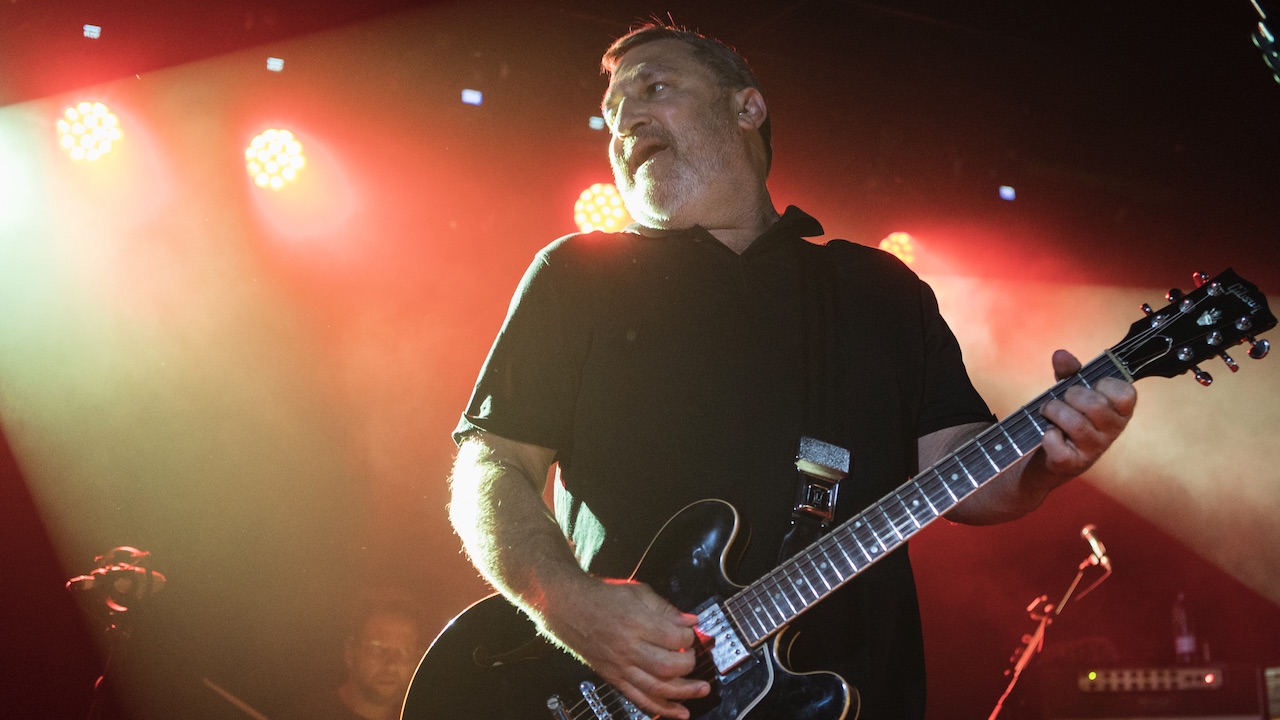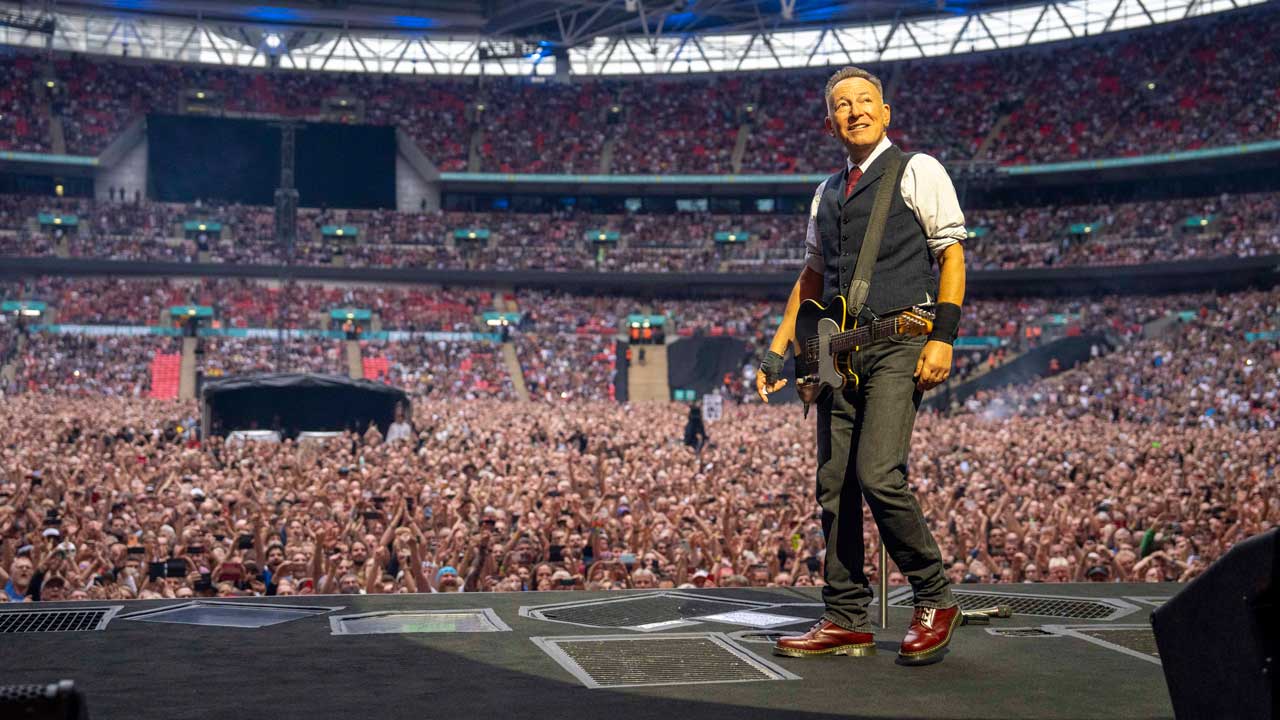You can trust Louder
For the final night of a 62-date run, The Afghan Whigs return to this storied north London venue, one they previously played in 2012, 2013 and 2015. Both the band and venue have taken a few years off since we last saw them, with only the latter, however, suffering literal fire damage in the interim period.
It’s been a five-year absence, in the band’s case. Unlikely survivors from the grunge era, The Afghan Whigs stood out from their multi-platinum peers with songs about lust, longing, and machismo, covering a slew of R&B classics both live and on-record along the way. That said, they weren’t immune to the era’s excesses, with talismanic frontman Greg Dulli seemingly as likely to sport a suit and tie as he was a black eye during photoshoots from that era.
They left us in the late '90s after the (then) silken swansong of 1965, making a surprise return to releasing new music and touring in 2014, with Dulli flanked by founding member bassist John Curley, and a cast of equally adept collaborators. Through the passage of time, the Whigs now resemble what’s been described as an extended family, with the audience invited round to enjoy their periodic get-togethers.
They still know how to throw a party. Initially cast in silhouette as he takes the stage, Dulli's monumental presence is immediately felt. In fact, at times his vocals boom over a road-tightened, 90-minute set to the point where it feels slightly uneven, but these songs are all still warm to the touch as London begins its winter months outside, all dark skies, drizzle and belated Bonfire Night fireworks.
They begin with I’ll Make You See God, their feel-good hit of the autumn, before Matomoros, from 2014's Do To The Beast, swaggers up to the bar and buys the place a drink. This lack of nostalgia is typical of the Whigs’ post-2014 reboot, which has resulted in three new albums, the latest of which, How Do You Burn?, just might be the strongest of the trio. Neither does Dulli shave the edges off his ragged vocal delivery, leaving some of his cracked notes as spiky as the iron filing stubble of his silvery beard. This is them, in the flesh, as compelling and imperfect as usual.
Eventually they reach into their '90s repertoire, with Gentlemen, What Jail Is Like and Debonair all given an airing a year before their 30th birthday. Since their conception these songs have lost none of their fire and gained an extra air of bittersweet tragedy. Now 57, Dulli is effectively cast as an older man wrestling with his oft-mythologised past, rather than fighting to apply salve to a(nother) broken relationship.
He and his bandmates seem to have the most fun a few songs later, when they abruptly pivot into Somethin’ Hot, the closest we’ll ever get to grunge strip club music, before Dulli takes his customary live-show interlude behind the piano, which begins with Please, Baby, Please, another uncut gem from their latest long-player.
Never one to stint on generosity as a host, Dulli also makes time to offer a preview of Broken Keys, a collaboration with his friend and tour support Ed Harcourt, due for release next year and jokingly introduced by Harcourt as “Bromancing The Stone”. As Harcourt leads the ways on piano while Dulli bides his time before his vocal turn, the pair are backed by Rick Nelson on violin for a duet that doesn’t stint on melancholy but never overdoes the sentiment.
The latest news, features and interviews direct to your inbox, from the global home of alternative music.
For the final rally, we get a brassy snippet of You’re The One That I Want before A Line Of Shots connects, expectations gleefully tossed aside ahead of the band disregarding an encore in favour of “the bonus round”, where they don’t leave the stage and solicit a roar of approval from an otherwise timid crowd.
My Enemy gives us one more love song delivered with a love bite, before an extended Summer’s Kiss shows a band in their fifth decade still happiest at play. Into The Floor follows, lacking the same immediacy but anything but a low point.
They wrap things up with a cover of The Smiths’ There Is a Light That Never Goes Out, epitomising both their charm and the singular stubbornness that gives them their unique appeal. Why end on a crowd-pleasing hit when you can pour that energy into a song you love?
“Lean into it, boys” is Dulli’s instruction to his bandmates, and they oblige, still determined to do things their way even now they’ve reached an age where younger bands are dropping covers of Afghan Whigs songs into their sets.
Tonight Dulli might be light on banter (“You can talk in-between songs, this isn’t Norway,” is one of a handful of wisecracks, before a good-natured missive later shuts down camera phone wankers shining their flashlights in his face), but he makes sure his band and his team get individual shout outs before he goes. Then he turns his and their energy outwards one last time. “I fucking love singing for you guys… I hope it ain’t five years next time,” he tells us, and then he’s gone, leaving his bandmates to play him off and us home.
A long-time contributor to Kerrang! and feature writer for Noisey, Fightland and more, punk rock lifer Alistair Lawrence wrote the acclaimed Abbey Road: The Best Studio in the World in 2012. Hopefully Ridley Scott will forgive him for accidentally blanking him in one of the studio’s hallways, should they ever meet again.

